
Beijing Fourth Intermediate People’s Court’s statistical report on the judicial review of arbitration will give you a glimpse of how Chinese courts review cases related to China’s top arbitration institutions.
On 10 Dec. 2019, Beijing Fourth Intermediate People’s Court (B.F.I.P.C.) and China Arbitration Institute (CAI) of China University of Political Science and Law jointly released the Big Data Research Report on Judicial Review of Arbitration Cases of Beijing Fourth Intermediate People’s Court (北京市第四中级人民法院仲裁司法审查案件大数据研究报告).
B.F.I.P.C. has jurisdiction over the judicial review of arbitration cases related to China’s top three arbitration institutions, which handle the vast majority of cross-border arbitration cases in China. Therefore, if you want to arbitrate in China, you may probably have to deal with B.F.I.P.C..
The aforementioned three arbitration institutions are China International Economic and Trade Arbitration Commission (CIETAC), Beijing Arbitration Commission (BAC) and China Maritime Arbitration Commission (CMAC).
These three institutions are the most important arbitration institutions for cross-border dispute resolution in China. They account for one-fifth of China’s arbitration market share, and in 2018, the amount in controversy of the cases accepted reached 20 billion CNY.
Given that B.F.I.P.C. has been in charge of these arbitration cases since Feb. 2018, the big data report covers the cases closed from 8 Feb. 2018 to 1st Sept. 2019.
There are mainly three types of judicial review cases under the jurisdiction of B.F.I.P.C., including cases of application for determining the validity of arbitration agreements, cases of application for setting aside arbitral awards, and cases of application for recognition and enforcement of foreign arbitral awards.
During the reporting period (from 8 Feb. 2018 to 1st Sept. 2019), the trial divisions have closed a total of 968 cases of these three types, among them, 316 cases of application for determining the validity of arbitration agreements, 647 cases of application for setting aside arbitral awards, and 5 cases (2 from Hong Kong S.A.R. and 3 from foreign arbitration institutions) of application for recognition and enforcement of foreign arbitral awards.
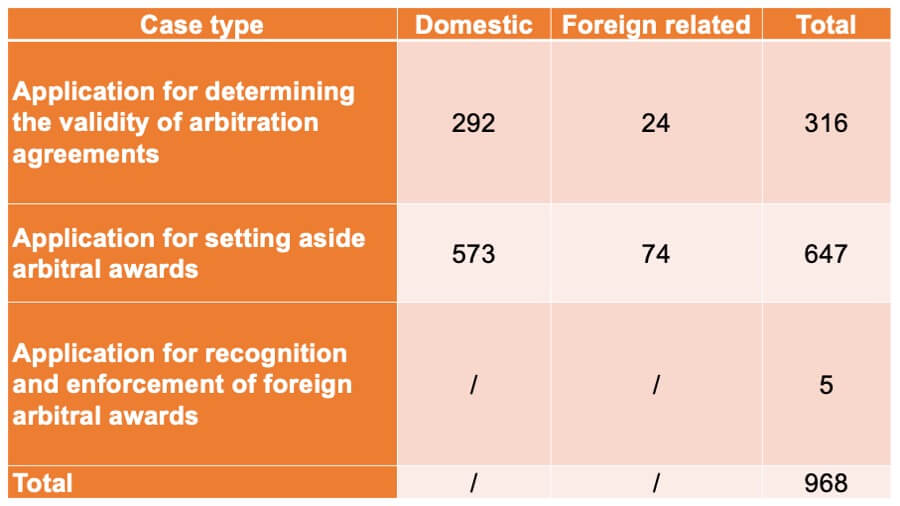
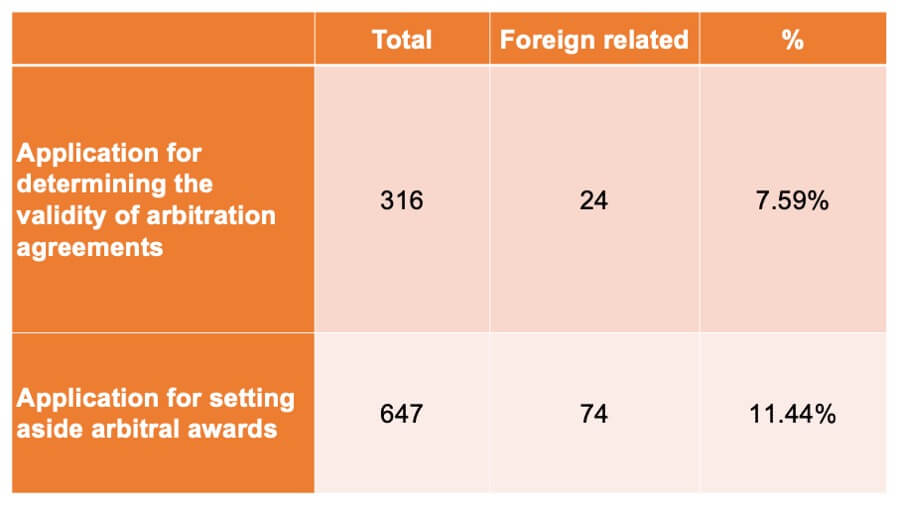
The report gives statistics of the time limit for the court to hear cases concerning judicial review of arbitration, and specifies the average trial time for cases not withdrawn by parties and substantively ruled by the court. Generally, the trial time of foreign-related cases is 4-6 times that of domestic cases, while the recognition and enforcement of foreign arbitral awards takes an average of 409 days.
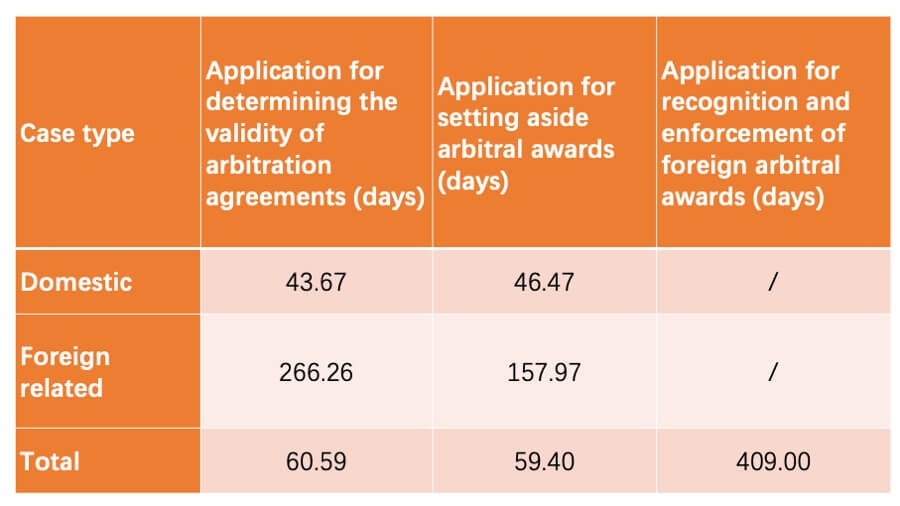
This report collects the rulings of the cases of application for determining the validity of arbitration agreements. Most of them were applications for a declaration of invalidity of arbitration agreements, the total number of which was 252, while only 2 cases were applications for verifying the validity of arbitration agreements. As a result, there are only 9 cases where the court supported applications for invalidating arbitration agreements.
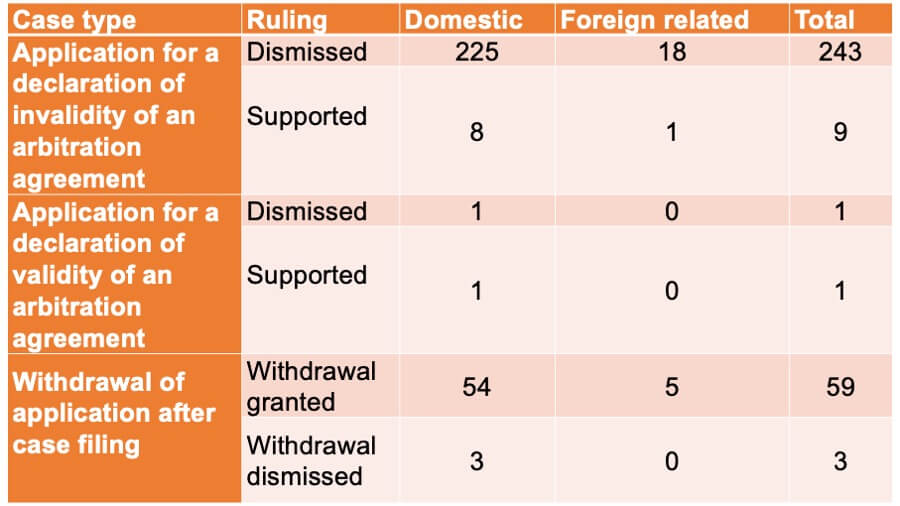
The report also analyzes the statistics on the rulings of the cases of application for setting aside arbitral awards, with only a few arbitral awards (5 in total) being set aside or subject to re-arbitration. This shows that generally, B.F.I.P.C. will recognize the arbitral awards.
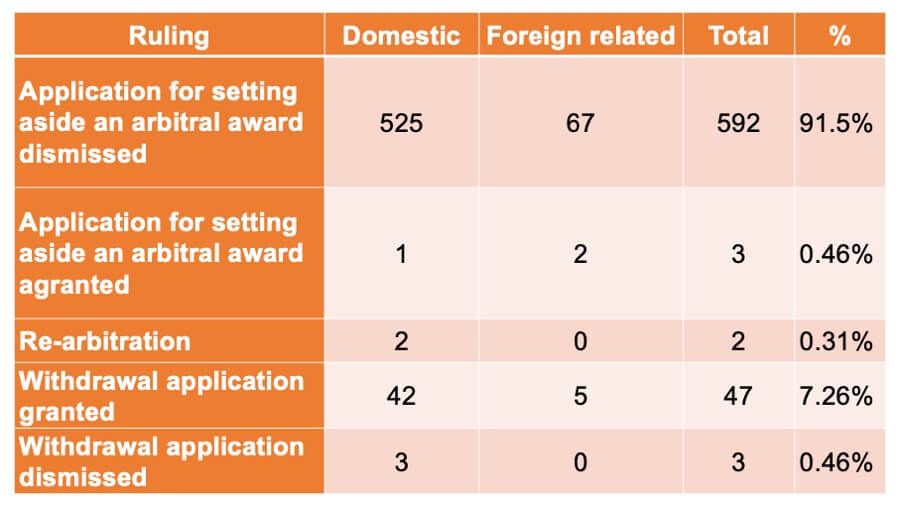
The laws applied by B.F.I.P.C. in cases of application for determining the validity of arbitration agreements are as follows:

The following form shows the number of cases handled by different arbitration institutions that the parties apply to B.F.I.P.C. to set aside the arbitral awards. We can see that BAC handles more domestic cases while CIETAC handles more foreign-related ones.
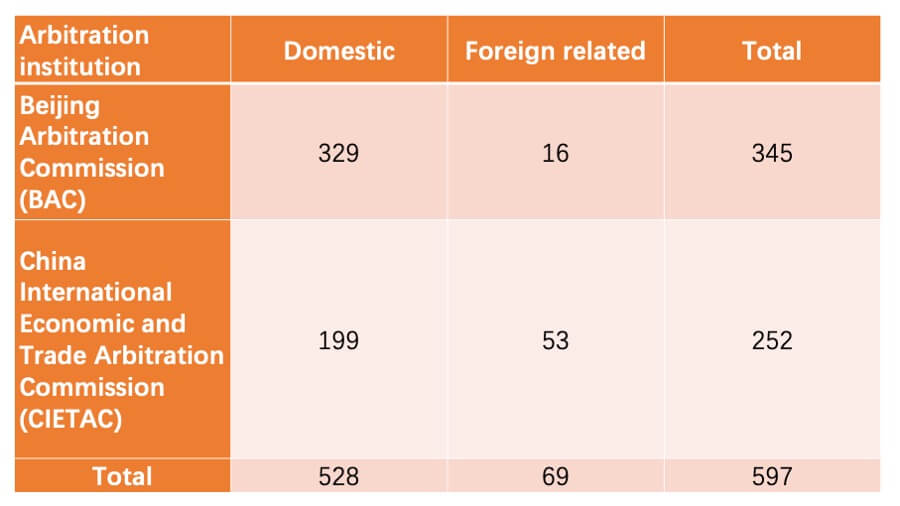
The rulings of the cases of application for setting aside arbitral awards are as follows. We can see that most of the applications were dismissed, except that 3 arbitral awards of CIETAC were ruled to set aside and CIETAC and BAC each had 1 award ruled to re-arbitrate.
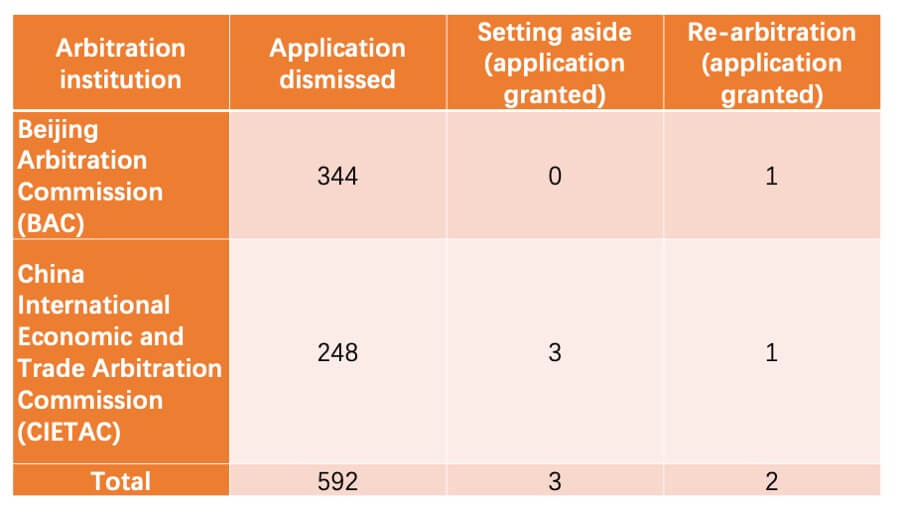
The report is prepared by CAI under the entrustment of B.F.I.P.C.. Being the most important arbitration research institute in China, CAI publishes the Quantitative Research Report on China’s Arbitration Credibility Assessment (中国仲裁公信力评估量化研究报告) annually.
CAI announces that it will cooperate with B.F.I.P.C. to publish relevant reports with English translations available on a regular basis.
Photo by zhang kaiyv(https://unsplash.com/@zhangkaiyv) on Unsplash
Contributors: Guodong Du 杜国栋 , Meng Yu 余萌








